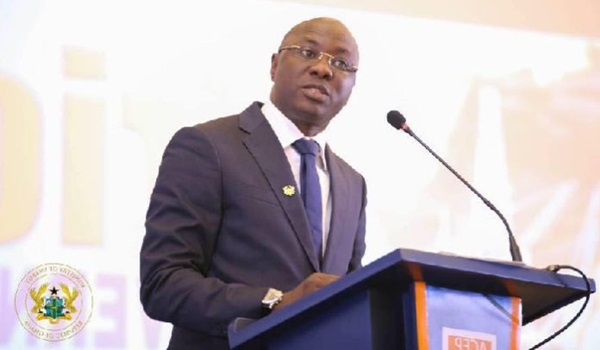
Ghana’s economic crossroads: The imperative of IMF extension
The general election comes off this weekend and as the country prepares for what is ahead, its economic future hangs in the balance.
Professor Godfred Alufar Bokpin’s timely counsel to extend the International Monetary Fund (IMF) programme for another three years resonates strongly.
This strategic move would provide a vital “policy anchor” for long-term funding, shielding the economy from turbulent international markets. Let’s be clear, the global shocks are still not entirely gone. There are uncertainties in the world outlook.
The war in the Middle East has the potential to escalate upon the assumption of office by the 46th President-elect of the United States, Donald Trump, on account of an alleged assassination attempt on his life by Iran.
The potential for record oil prices, the escalation of the Russia-Ukraine war and the potential trade wars between America and China are some of the pitfalls that point to uncertainty ahead.
That, Ghana’s economy is not isolated from the world economy cannot be overstated. We are still reeling from the effects of COVID-19 and its attendant soaring and disruptive supply chain, hence imported inflation.
Given that Ghana has had to go back to the IMF over 18 times already is the more reason we must have a long-term perspective on how we want to manage the economy going forward.
Therefore, the onus will be on the new government in 2025 to have a hard look and take the critical decisions that will in the short term be painful but needful. If we intend to end the cyclical IMF bailout, we must hasten slowly as we hit the ground running when the elections are over to fulfil campaign promises.
This is why we support the call by the Professor of Finance and Economics, Prof. Bokpin (reference our front page story).
Ghana’s recent economic history underscores the wisdom of Prof. Bokpin’s advice. The 2022 IMF agreement and subsequent debt restructuring efforts have yielded positive results, stabilising macroeconomic indicators and easing inflationary pressures. However, the economy remains vulnerable to external shocks and a premature exit from the IMF programme could prove costly.
The benefits of an extended IMF partnership are multifaceted: Credibility and Stability: A prolonged partnership signals commitment to fiscal discipline, bolstering investor confidence and facilitating access to affordable capital. Long-term Funding: Patient capital at reasonable rates would support Ghana’s 15-year transformation agenda, driving sustainable growth and development.
A key part of our recent economic crisis has been on the back of huge interest payments on both domestic and international debts with unprecedented two-digit interest payments on bonds. Many analysts had described the unsustainable nature of the debt burden on the economy, saying it was only a matter of time before our economy was going to be crushed and crushed it did in 2022.
Extending the IMF programme will also come with economic diversification: IMF guidance would encourage diversification beyond traditional sectors, fostering resilience and reducing dependence on volatile commodities.
For example, focusing on agriculture and its related services will drive down food prices. We cannot afford another 52 per cent inflationary rate as we did in 2022.
At current levels of over 20 per cent, Ghana has one of the highest inflation rates in the sub-region. We need to rein in inflation, especially domestic food components of the consumer price index.
Moreover, an extended facility with the IMF will strengthen institutional capacity, and improve governance and public financial management. Given that politicians have added some sentimentality to going to the IMF for support, the decision may not be a popular one, but it sure does whip us in line.
If we aim to have a long-term perspective of economic development, Prof. Bokpin’s suggestion is worth the short-term pain for long-term gain. We cannot do business as usual with the economy.
To maximise the benefits of an extended IMF programme, Ghana must prioritise strategic infrastructure development through public-private partnerships.
Focus on “economic infrastructure”, that is, projects generating returns such as transportation networks, energy initiatives and industrial parks would stimulate growth, create jobs and attract investments.
The alternative to rush back to international bond markets poses significant risks. Ghana’s recent debt default and ongoing economic challenges would likely result in high borrowing costs, exacerbating debt distress.
Extending the IMF programme offers Ghana a critical window of opportunity to solidify economic gains, build resilience and pave the way for sustainable growth.
Policymakers must seize this chance, prioritising prudent fiscal management, strategic infrastructure development and long-term partnerships.